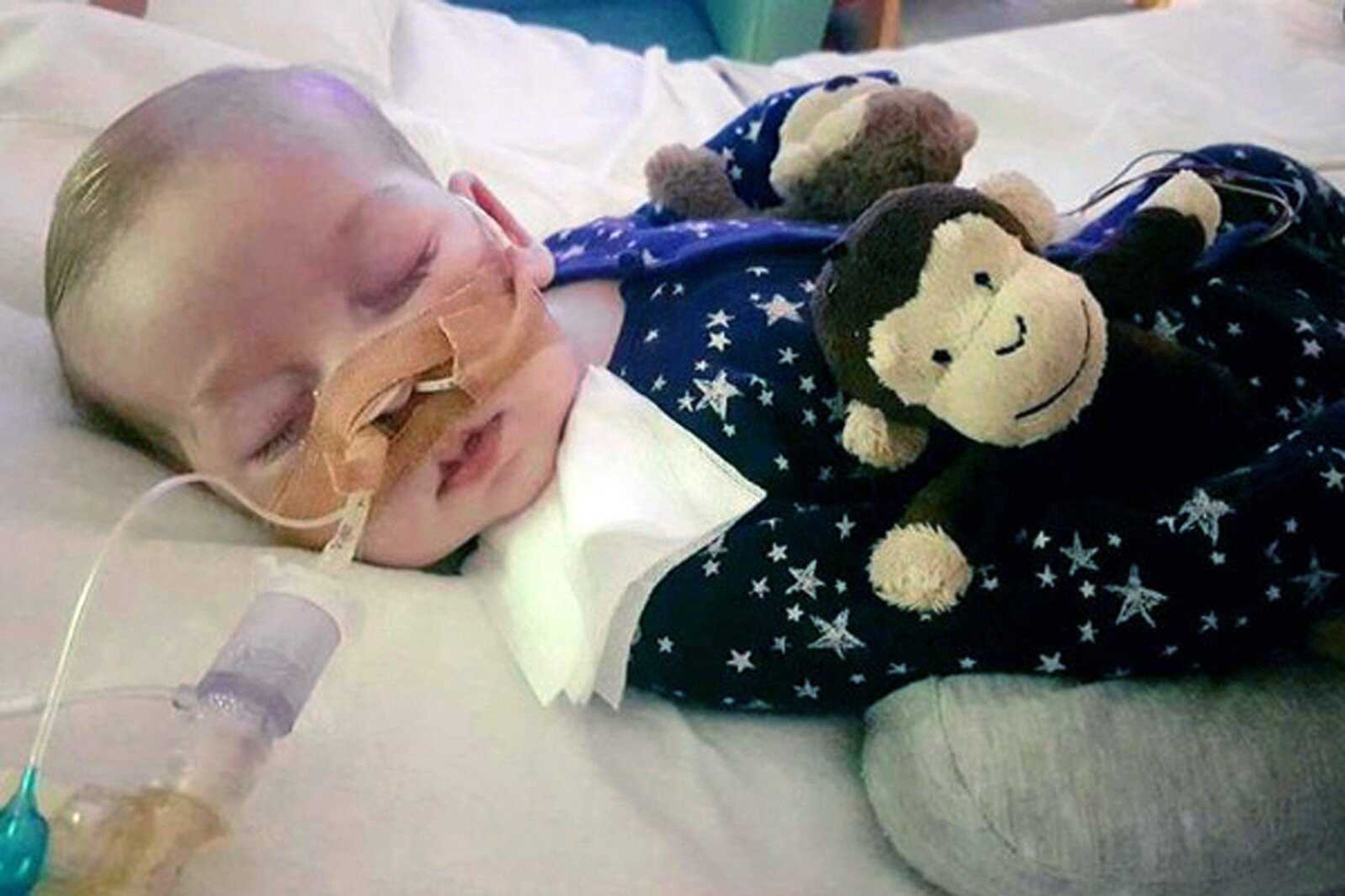LONDON -- An American doctor testifying in the case of a British couple seeking the right to take their critically ill infant to the United States for treatment said Thursday it was worth trying an experimental therapy that only recently had emerged.
The doctor, whose name and institution cannot be named because of a court order, told Britain's High Court new clinical data has emerged about the effectiveness of the treatment proposed for 11-month-old Charlie Gard, who suffers from a rare genetic condition and is on life support.
The family is locked in a legal battle with Britain's most famous children's hospital because they disagree on whether trying the experimental treatment is Charlie's best interest. The case attracted international attention after President Donald Trump and Pope Francis weighed in.
"We have a much better understanding of the data," the doctor testified, saying the information has emerged in the time since judges first rejected the parents' bid to take him to America.
Charlie suffers from mitochondrial depletion syndrome, a rare genetic disease that has left him brain-damaged and unable to breathe unaided.
Specialists at Great Ormond Street Hospital have fought the parents' bid for therapy because they don't think it will help and may cause him pain. The hospital contends Charlie should be allowed to die with dignity.
A succession of courts has backed the hospital, but the case returned Thursday to the High Court after claims of new evidence and the high-profile interventions.
The U.S. doctor estimated the chance of "clinical meaningful success" for an improvement in Charlie's muscle use to be at least 10 percent but offered no conclusion on whether the infant's brain function would improve.
The treatment, known as nucleoside therapy, is not a cure. The doctor said he'd be willing to travel to Britain to see the child.
The emotional toll on all involved has been clear. Two hours into the High Court hearing, questions from Judge Nicholas Francis prompted tensions to boil over.
Charlie's mother, Connie Yates, shouted out, accusing Francis of misquoting her earlier statements about her son's quality of life.
"We said he's not suffering and not in pain," she yelled. "If he was, we wouldn't be up here fighting."
Chris Gard then slammed his water cup down, and the couple left the courtroom.
The couple returned after a break. The judge offered a reassuring word, acknowledging the situation was desperate.
"I understand you walking out," he said.
Connect with the Southeast Missourian Newsroom:
For corrections to this story or other insights for the editor, click here. To submit a letter to the editor, click here. To learn about the Southeast Missourian’s AI Policy, click here.







